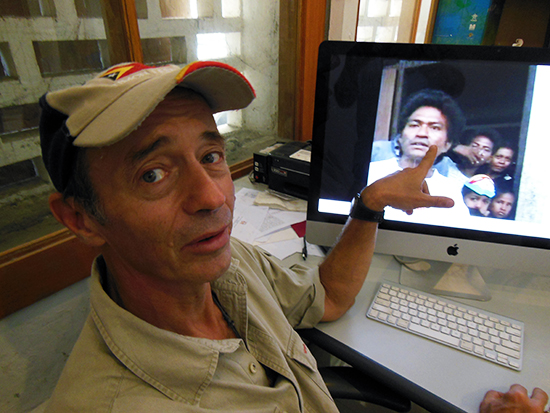
AUCKLAND (Cafe Pacific/Pacific Media Watch): A year after Indonesian troops killed more than 270 peaceful demonstrators at the cemetery of Santa Cruz in the Timor-Leste capital of Dili in 1991, news footage secretly shot by a cameraman surfaced in a powerful new film.
The Yorkshire Television documentary, In Cold Blood: The Massacre of East Timor, screened in six countries and later broadcast in other nations, helped change the course of history.
Until then, countries such as Australia and New Zealand – in spite of a New Zealander being killed in the massacre – had been content to close a blind eye to the illegal Indonesian invasion in 1975 and the atrocities committed for a quarter century.
The cameraman, Max Stahl, who risked his own life to film the massacre and bury the footage cassette in a freshly dug grave before he was arrested, knew this evidence of the massacre would be devastating.
In a documentary made a decade later by Yorkshire Television’s Peter Gordon, Bloodshot: The Dreams and Nightmares of East Timor, that interviewed key players –including Stahl himself - in the transition to restored independence in 2002, Timorese leaders reveal just how critical this footage was in telling their story of repression to the world.
“When we knew that [the film crew] were safe with all the cameras, and all the cassettes were safe, we knew it would be a bomb,” recalls Prime Minister Xanana Gusmão, a former Timorese resistance leader imprisoned by the Indonesians for life (although he was freed after six years).
“And it was!”
“That’s what changed everything. We are not going to allow Santa Cruz to be forgotten,” says former President Jose Ramos-Horta, who jointly won the Nobel Peace Prize with Bishop Ximenes Belo in 1996.
“So Santa Cruz massacre was the turning point.”
Fifty nine-year-old Stahl - his name is actually an alias for British journalist and television presenter Christopher Wenner, a moniker that he adopted to protect his Timorese colleagues - is today a hero in this Asia-Pacific nation.
But he is also one of a small group of expatriates who have committed their life to this emerging new state. He has established the Max Stahl Audiovisual Archive Centre of Timor-Leste (CAMSTL), recording a national digital history and training a new generation of young Timorese filmmakers.
Abridged - read the full article here
This work is licensed under a Creative Commons Attribution-NonCommercial 3.0 New Zealand Licence.




